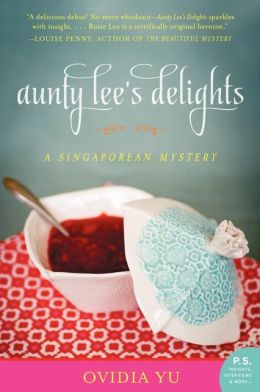Rosie Lee, known as Aunty Lee to those who come to her restaurant in Singapore, is what is known in America as a busybody. In her homeland, she is kaypoh, or someone who minds the business of others with as much energy as she minds her own. She embodies kiasu, or fear of losing out, a typical Singaporean characteristic which she takes to the extreme when two young women are murdered and she inserts herself into the investigation.
While at first coming across as a bored, gossipy widow, Aunty Lee is far smarter than people suspect and usually finds a way to get the information she needs—often as the result of feeding suspects and police alike her homemade delicacies. She mixes people together in the same way that she combines her spicy ingredients, carefully observing how they interact until she discovers the secrets they hold. In the novel, the act of cooking is often used as a metaphor for life; Aunty Lee compares the idea of letting things settle in one’s mind to that of cleaning out a stockpot to remove questionable debris.
While the plot revolves around the murder investigation, the story itself is more of a character study, focusing on the suspects and what they have to hide. While Aunty Lee and her employee and companion, Nina, are well-drawn and likable, many of the other characters are almost caricatures of themselves from the gold-digging stepdaughter-in-law, Selina, to the racist Australian expat Harry Sullivan. On the other hand, the more nuanced descriptions of Singapore add much to the story, introducing the reader to a mysterious, tradition-bound world where many different cultures meet and sometimes clash.
While the concept of using a nosy older woman as an amateur sleuth isn’t original (Miss Marple, anyone?), the opportunity to learn more about Singaporean culture and cooking sets this novel apart and leaves the reader sated.



